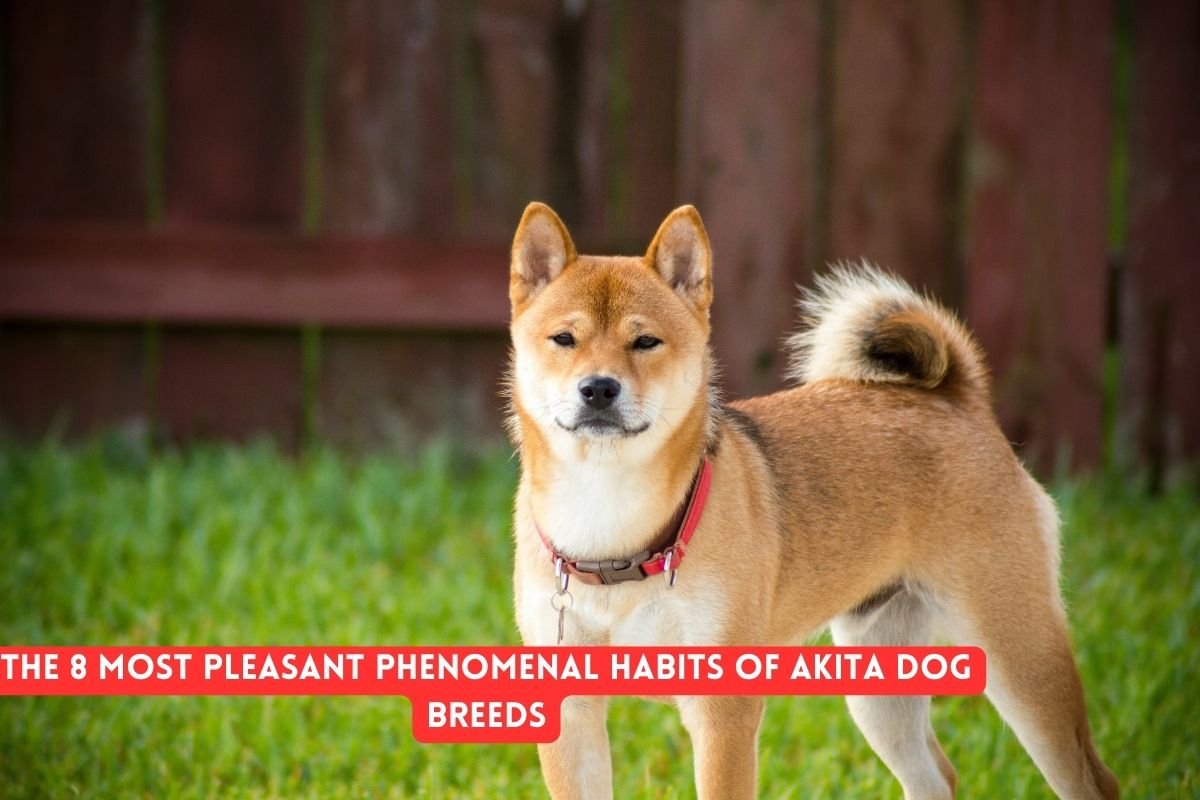Akita dogs, originating from the mountainous regions of Japan, are renowned for their noble demeanor, loyalty, and striking appearance. These dogs possess a unique combination of habits and characteristics that make them particularly endearing to their owners. Here, we explore the eight most pleasant phenomenal habits of Akita dog breeds that set them apart. These dogs are natural guardians. They possess a keen sense of awareness and are highly protective of their loved ones. While they are gentle with family members, they can be formidable protectors, ensuring a safe environment at home.
Loyalty Beyond Measure
Akitas are known for their unwavering loyalty. They form strong bonds with their families and are exceptionally devoted. This trait is deeply ingrained in their history, with tales of Akitas waiting for their owners tirelessly, showcasing a dedication that remains unmatched.
Protective Instincts
These dogs are natural guardians. They possess a keen sense of awareness and are highly protective of their loved ones. While they are gentle with family members, they can be formidable protectors, ensuring a safe environment at home.
Calm Demeanor
Despite their imposing size and strength, Akitas are known for their calm and composed nature. They are not overly excitable, making them excellent companions for those who prefer a more tranquil and controlled pet.
Intelligence and Trainability
Akitas are intelligent dogs that respond well to training. They are quick learners and can be taught a variety of commands and tricks. Their intelligence makes them versatile, capable of adapting to different roles, from family pets to working dogs.
Cleanliness
One of the lesser-known yet highly pleasant habits of Akitas is their cleanliness. They are meticulous about grooming themselves, much like cats. This trait results in less odor and a generally cleaner living environment.
Affectionate Nature
While they may appear aloof to strangers, Akitas are incredibly affectionate with their families. They enjoy close contact and often show their love through gentle nudges and leaning against their favorite people.
Playfulness
Akitas maintain a playful side well into adulthood. They enjoy interactive play, which strengthens the bond with their owners. Their playfulness, coupled with their strength and agility, makes for engaging and fun activities.
Silent Communication
Akitas are not overly vocal dogs. They communicate effectively through body language and subtle sounds. This trait is particularly appreciated by those who live in quieter neighborhoods or prefer a peaceful home environment. These dogs are natural guardians. They possess a keen sense of awareness and are highly protective of their loved ones. While they are gentle with family members, they can be formidable protectors, ensuring a safe environment at home.
Conclusion
Akita dogs bring a unique blend of loyalty, protection, intelligence, and affection to their families. Their remarkable habits, from their protective instincts to their cleanliness, make them truly phenomenal companions. For those who appreciate a calm, dignified, and loving pet, the Akita breed stands out as an exceptional choice.
FAQs
Are Akitas good with children?
Yes, Akitas can be very good with children, especially if raised with them. They are protective and gentle but should always be supervised around young kids due to their size and strength.
Do Akitas get along with other pets?
Akitas can be territorial and may not get along with other pets, particularly those of the same sex. Early socialization is crucial for better cohabitation.
How much exercise do Akitas need?
Akitas require moderate exercise. Daily walks and play sessions are essential to keep them healthy and prevent boredom.
Are Akitas difficult to train?
No, Akitas are intelligent and trainable. However, they can be independent, so consistent and firm training methods work best.
What is the lifespan of an Akita?
The average lifespan of an Akita is around 10 to 15 years, depending on their health and living conditions.
